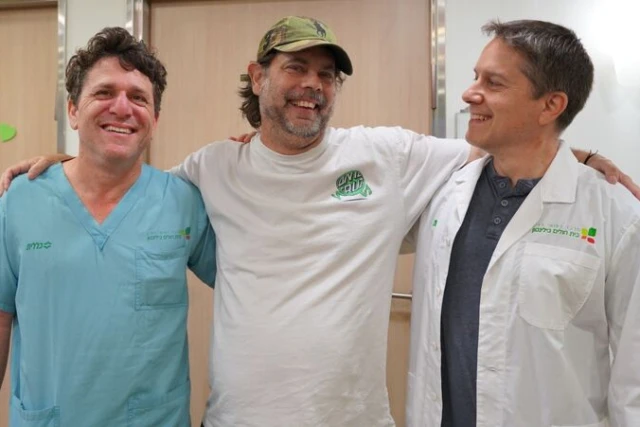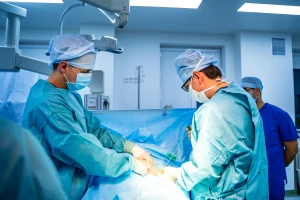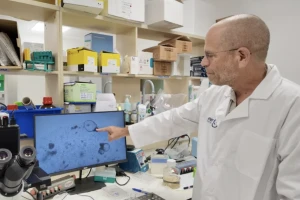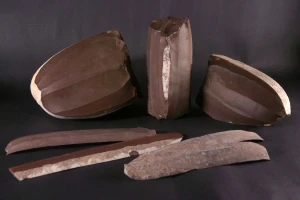First successful mitral valve repair on heart transplant patient conducted in Israel

A team of Israeli doctors at Rabin Medical Center in Tel Aviv successfully performed the first emergency valve repair on a heart transplant patient. While only two such procedures have been documented worldwide, the Israeli operation marked the first time the surgery was attempted on a patient in cardiogenic shock.
The patient, 47-year-old Simon Fischler, underwent the emergency operation 33 years after receiving a heart transplant at the age of 14 due to severe heart disease. He had been admitted to the hospital’s intensive care unit two months earlier after suffering cardiogenic shock, a life-threatening condition in which the heart can no longer pump enough blood to meet the body’s needs.
Prof. Leor Perl, head of the Rabin's Catheterization Institute, explained Fischler’s condition during an interview with The Times of Israel. “Simon had deteriorated acutely and, in fact, presented to us as an urgent catastrophe.”
“The myocardium, the muscle of the heart, stopped working, and the mitral valve, the one that divides the two left sides, the left atrium from the left ventricle, had started to leak severely,” he explained. Due to the patient’s rapidly deteriorating condition, the medical team assessed that an emergency surgery was needed to save his life.
“His blood pressure continued to drop and we decided to bring in all the team and try to do something that was the last resort,” Perl said.
He performed the emergency surgery together with Dr. Amos Levy, senior physician at the Catheterization Lab; Dr. Yaron Shapira, head of Echocardiography; Dr. Ben Cohen, senior physician at the Echo Lab; and Dr. Binyamin Ben-Avraham, head of the Heart Failure Unit.
“Technically, we knew it was very successful immediately,” Perl recalled. “But the effect is sometimes unpredictable. It doesn’t always work, regardless of your skills and preparation, because things happen. It’s a biological system.”
The surgery was successful, and Fischler’s condition improved dramatically within hours. By the next day, he was breathing independently without medical assistance.
Perl noted that the medical team already knew the patient well. “We all knew him intimately because he had been treated for years by our heart transplantation and heart failure team,” he said. “We are very close to our patients, especially those who have been under our care for so long. We know his family as well, and hopefully he has many years ahead of him.”
Fischler expressed deep gratitude to the doctors: “I am very grateful, very grateful to the team of doctors,” he told the Times of Israel. Given his fragile health, he had long anticipated an eventual emergency.
He knew he would face problems one day.
“I’ve been very lucky to have a heart that meshed as well as it did with my body for as long as it has,” Fischler said, adding that it’s “very difficult to put into words everything the doctors did for me.”
“It’s just a miracle.”
Israel has established itself as a leader in global healthcare, with advanced hospitals and highly skilled medical teams. In June, doctors at Hadassah Hospital in Jerusalem successfully implanted an artificial heart in a patient.

The All Israel News Staff is a team of journalists in Israel.
You might also like to read this:











